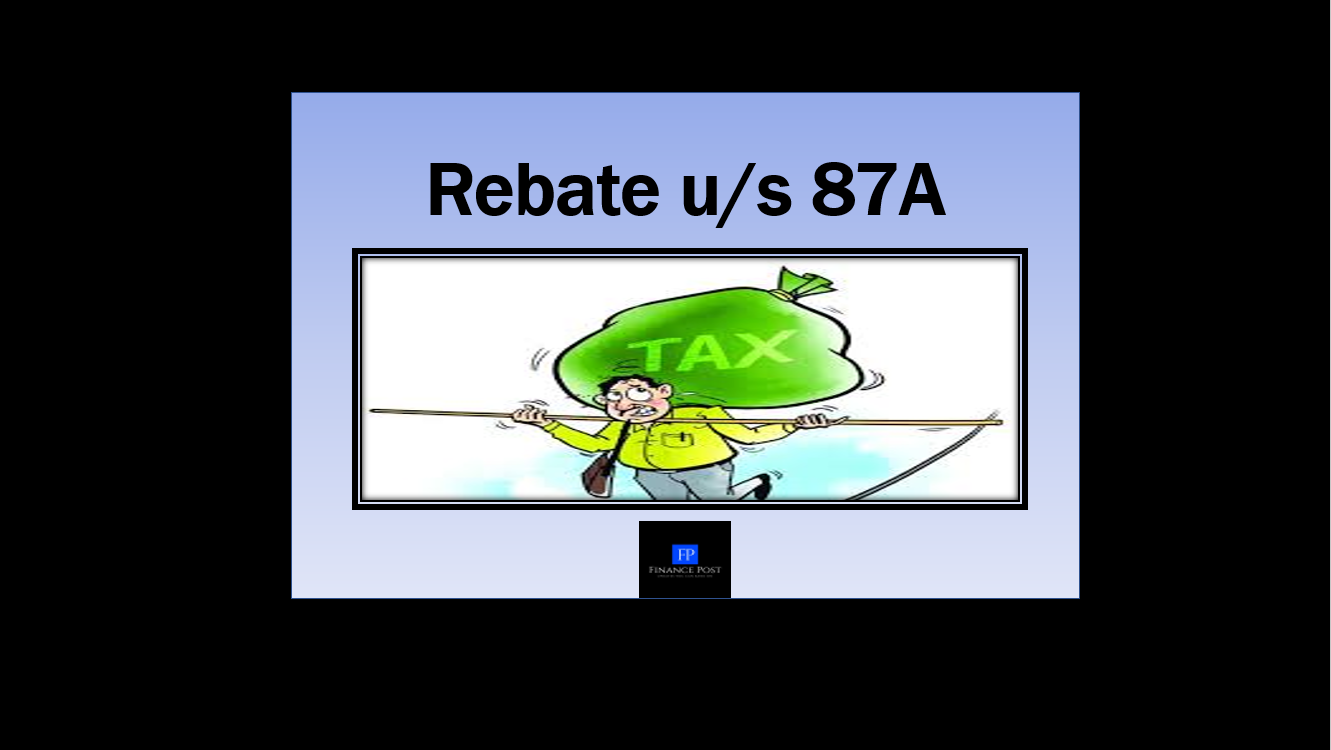
Last updated on July 22nd, 2022 at 11:55 am
Section 87A of Income Tax Act: Rebate
The Income Tax Act, 1961 provides for a Rebate of income tax to certain individuals whose income does not exceed a certain limit. This limit has been increased substantially in Budget 2019. Let us understand this provision and computation of Rebate in detail.
What is a Rebate of Income Tax?
A rebate of Income-tax, as the term suggests is an amount of tax that is free or is not to be paid to tax authorities. In other words, the taxpayer is exempt from paying tax to the extent of the “Rebate” amount if he satisfies the eligibility criteria mentioned in the Act.
Hence, in order to avail Rebate, the taxpayer must have a taxable income and should file his tax return.
What is the provision under the Income Tax Act?
The extract of the Act is as below.
87A. An assessee, being an individual resident in India, whose total income does not exceed [three hundred fifty thousand]* rupees, shall be entitled to a deduction, from the amount of income-tax (as computed before allowing the deductions under this Chapter) on his total income with which he is chargeable for any assessment year, of an amount equal to hundred percent of such income-tax or an amount of [Two thousand and five hundred]* rupees, whichever is less.
*Amendment of section 87A
The Finance Act 2019, after the Interim Budget 2019 has amended the above section as follows:
[su_table]
| (a) | for the words “three hundred fifty thousand”, the words “five hundred thousand” shall be substituted; | |
| (b) | for the words, “two thousand and five hundred”, the words “twelve thousand and five hundred” shall be substituted. |
What is the eligibility criteria or conditions to avail of this Rebate?
The amount of Rebate under this section is 100% of Income-tax payable but restricted to Rs. 12,500 for the financial year. ( Note: Maximum rebate u/s 87A was Rs. 2,500 upto 2018-19)
Computation of Rebate u/s 87A
In order to compute the Rebate u/s 87A, one should first compute the Total Income of the Individual and reduce deductions u/s 80C to 80U.
Total income, in this case, includes income under all heads
- Salary,
- Income from house property,
- Income from Business and profession,
- income from capital gain and
- Income from other sources
minus all deduction u/s 80C to U
If the total income minus all deduction u/s 80C to 80U is less than Rs 5 lakhs, Then the entire amount of tax payable to the extent of Rs. 12,500 is available as Rebate u/s 87A.
Note: Rebate u/s 87A is also available if you opt for the new tax regime u/s 115BAC
For Example:
Mr. ABC is a resident individual with the following Income:
[su_table]
| Particulars |
Amount |
| Gross Salary |
5,00,000 |
| Less: Std. Deduction |
(50,000) |
| Net Salary Income (A) |
4,50,000 |
| Income from Other Sources (B) |
20,000 |
| Gross Total Income (A+B) |
4,70,000 |
| Less: Deduction u/s 80C |
(1,50,000) |
| Net Taxable Income |
3,20,000 |
| Tax on above |
3,500 |
| Less: Rebate u/s 87A |
(3,500) |
| Net tax payable |
0 |
| Add: Cess @ 4% |
0 |
| Total Tax Payable |
0 |
[/su_table]
- How to do a transaction in Digital Rupee (CBDC-R)? – A Step by step Guide - 10/12/2022
- Can you rectify your 26AS? - 20/09/2022
- Tax implications on Cashback - 09/09/2022
Disclaimer: The above content is for general info purpose only and does not constitute professional advice. The author/ website will not be liable for any inaccurate / incomplete information and any reliance you place on the content is strictly at your risk.
Follow us on Social Media by clicking below
Follow @financepost_in
Be the first to comment